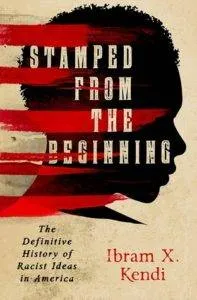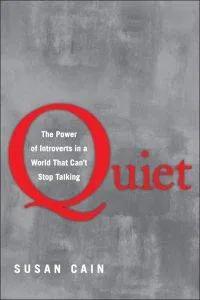
Read Harder: A Book of Social Science
This content contains affiliate links. When you buy through these links, we may earn an affiliate commission.
This year’s Read Harder challenged is presented by Libby.
 Meet Libby. The one-tap reading app from OverDrive. By downloading Libby to your smartphone, you can access thousands of eBooks and audiobooks from your library for free anytime and anywhere. You’ll find titles in all genres, ranging from bestsellers, classics, nonfiction, comics and much more. Libby works on Apple and Android devices and is compatible with Kindle. All you need is a library card but you can sample any book in the library collection without one. In select locations, Libby will even get your library card for you instantly. Learn more at https://meet.libbyapp.com/. Happy Reading.
Meet Libby. The one-tap reading app from OverDrive. By downloading Libby to your smartphone, you can access thousands of eBooks and audiobooks from your library for free anytime and anywhere. You’ll find titles in all genres, ranging from bestsellers, classics, nonfiction, comics and much more. Libby works on Apple and Android devices and is compatible with Kindle. All you need is a library card but you can sample any book in the library collection without one. In select locations, Libby will even get your library card for you instantly. Learn more at https://meet.libbyapp.com/. Happy Reading.
When it comes to task #14 of the 2018 Read Harder Challenge, I have good news, and I have bad news. Well, actually, I have one piece of news that counts as both good and bad: no matter which corner of the social sciences most piques your interest, there are a ton of quality reads to be had. If you’re curious as to how that could possibly be bad news, then perhaps you should read Barry Schwartz’s The Paradox of Choice: Why More is Less. (Really, you should; it’s very illuminating.) Yes, choices abound, but I’m here to help narrow the field. Each and every one of these selections sheds light on one fascinating aspect of us humans and our puzzling, amazing, infuriating interactions with each other and the world around us. Fair warning: these books will also lead to an increased frequency of the use of the phrase, “Hey, did you know…” in your conversations. You might want to apologize to your friends and co-workers in advance.
If you’ve always suspected that the sports world and the real world have a lot more in common than most people would think, the book for you is Franklin Foer’s cheeky exploration of all the ways in which the paradigms of the soccer pitch—rivalries, strategies, fan cultures—reflect the paradigms of social, economic, and political arenas.
Segregation isn’t only the logical result of racial prejudice and the shameful practices of banks and realtors. As Richard Rothstein makes painstakingly clear, it’s the intended outcome of decades of housing policy designed and executed at every level of the U.S. government. A devastating but essential history.
In this National Book Award-winning book, historian Ibram X. Kendi examines a variety of American intellectuals, from slaveholders to civil rights activists, as a way of probing the origins of the racist notions that have poisoned American life for centuries.
Speaking of racism, Carol Anderson’s White Rage captures a slightly different side of the conversation by focusing on the numerous and deliberate ways in which black progress has been met with pointed resistance throughout American history, from Jim Crow to the backlash against Barack Obama’s historic election.
We know what makes people successful, right? Umm, maybe not, as it turns out. By putting a bunch of our accepted maxims—nice folks finish last, confidence is key, etc.—under a microscope, Barker hopes to separate fact from fiction and offer up a recipe for success that has the backing of scientific study. If Malcolm Gladwell wrote a self-help book, it would look a lot like this.
Gladwell sometimes gets dinged for cherry-picking his evidence, but few writers can spin a yarn while weaving in deeply fascinating insights about human behavior like our man Malcolm. Here, he examines how the right people in the right place at the right time can turn trends into full-blown movements.
Nobel prize–winner Daniel Kahneman sheds light on all the amazing ways in which our “two brains”—the careful, methodical one that handles complex problems and the automated, highly biased one that processes everything else—get us into (and out of) trouble. Bonus: Book Riot’s own Rebecca Schinsky and Jeff O’ Neal’s podcast devoted to the book makes for A+ read-along listening.
Quiet highlights what Cain sees as a world designed to reward extroverted behaviors and ignore much of what’s good about introverts. The result? Everybody loses. But when we understand how best to tap into what both groups bring to the table, we’re much likelier to find fulfillment and the success we want from our careers and relationships.
 Meet Libby. The one-tap reading app from OverDrive. By downloading Libby to your smartphone, you can access thousands of eBooks and audiobooks from your library for free anytime and anywhere. You’ll find titles in all genres, ranging from bestsellers, classics, nonfiction, comics and much more. Libby works on Apple and Android devices and is compatible with Kindle. All you need is a library card but you can sample any book in the library collection without one. In select locations, Libby will even get your library card for you instantly. Learn more at https://meet.libbyapp.com/. Happy Reading.
Meet Libby. The one-tap reading app from OverDrive. By downloading Libby to your smartphone, you can access thousands of eBooks and audiobooks from your library for free anytime and anywhere. You’ll find titles in all genres, ranging from bestsellers, classics, nonfiction, comics and much more. Libby works on Apple and Android devices and is compatible with Kindle. All you need is a library card but you can sample any book in the library collection without one. In select locations, Libby will even get your library card for you instantly. Learn more at https://meet.libbyapp.com/. Happy Reading.
When it comes to task #14 of the 2018 Read Harder Challenge, I have good news, and I have bad news. Well, actually, I have one piece of news that counts as both good and bad: no matter which corner of the social sciences most piques your interest, there are a ton of quality reads to be had. If you’re curious as to how that could possibly be bad news, then perhaps you should read Barry Schwartz’s The Paradox of Choice: Why More is Less. (Really, you should; it’s very illuminating.) Yes, choices abound, but I’m here to help narrow the field. Each and every one of these selections sheds light on one fascinating aspect of us humans and our puzzling, amazing, infuriating interactions with each other and the world around us. Fair warning: these books will also lead to an increased frequency of the use of the phrase, “Hey, did you know…” in your conversations. You might want to apologize to your friends and co-workers in advance.
 How Soccer Explains the World: An Unlikely Theory of Globalization
How Soccer Explains the World: An Unlikely Theory of Globalization The Color of Law: A Forgotten History of How Our Government Segregated
The Color of Law: A Forgotten History of How Our Government Segregated Stamped from the Beginning: The Definitive History of Racist Ideas in America
Stamped from the Beginning: The Definitive History of Racist Ideas in America White Rage: The Unspoken Truth of Our Racial Divide
White Rage: The Unspoken Truth of Our Racial Divide


 Quiet: The Power of Introverts in a World That Can’t Stop Talking
Quiet: The Power of Introverts in a World That Can’t Stop Talking